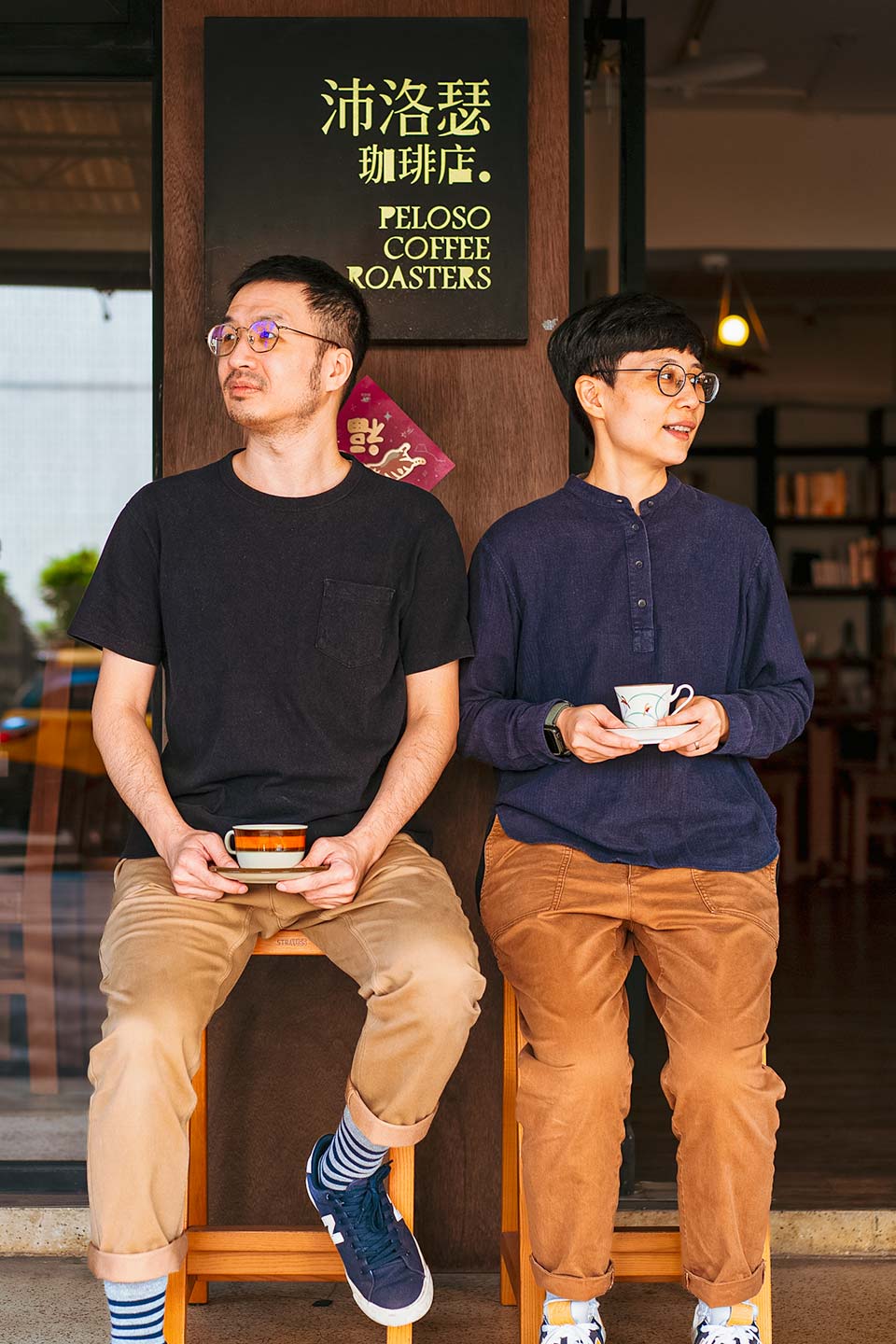
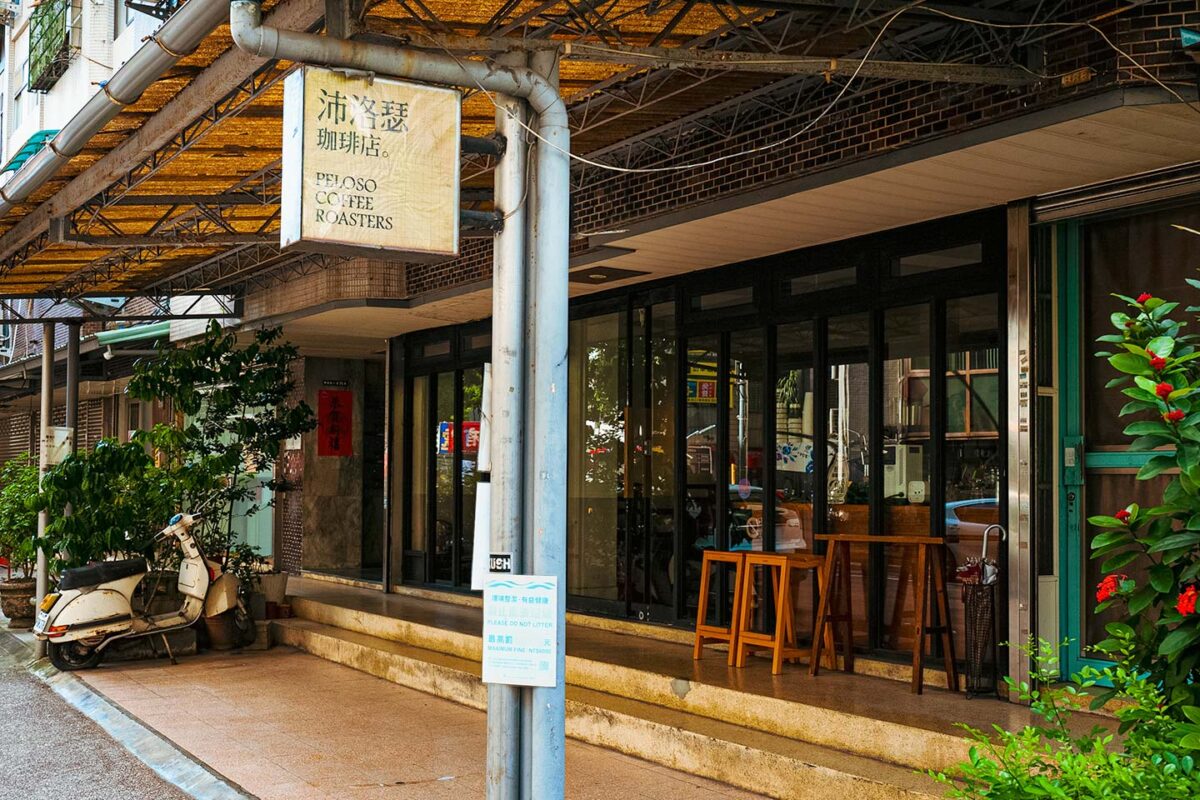
In 2010, Kankan and Shí’èr opened Peloso Coffee Roasters (Peloso Coffee) in Taipei, Taiwan. Partners not only in business but also at home, the cafe embodies their philosophy of combining work with life.
Kankan and Shí’èr founded Peloso Coffee in their 20’s, with the limited funds and knowledge they could pool together. Back then, it was a micro cafe in a space no bigger than 10 meters squared. Now, more than 10 years on, it has grown to include a roastery with a takeout bar, and a team of 10. As the business evolves, and Kankan and Shí’èr spend more time on management responsibilities and less on customer interactions, they have begun to envisage the next step in their future.
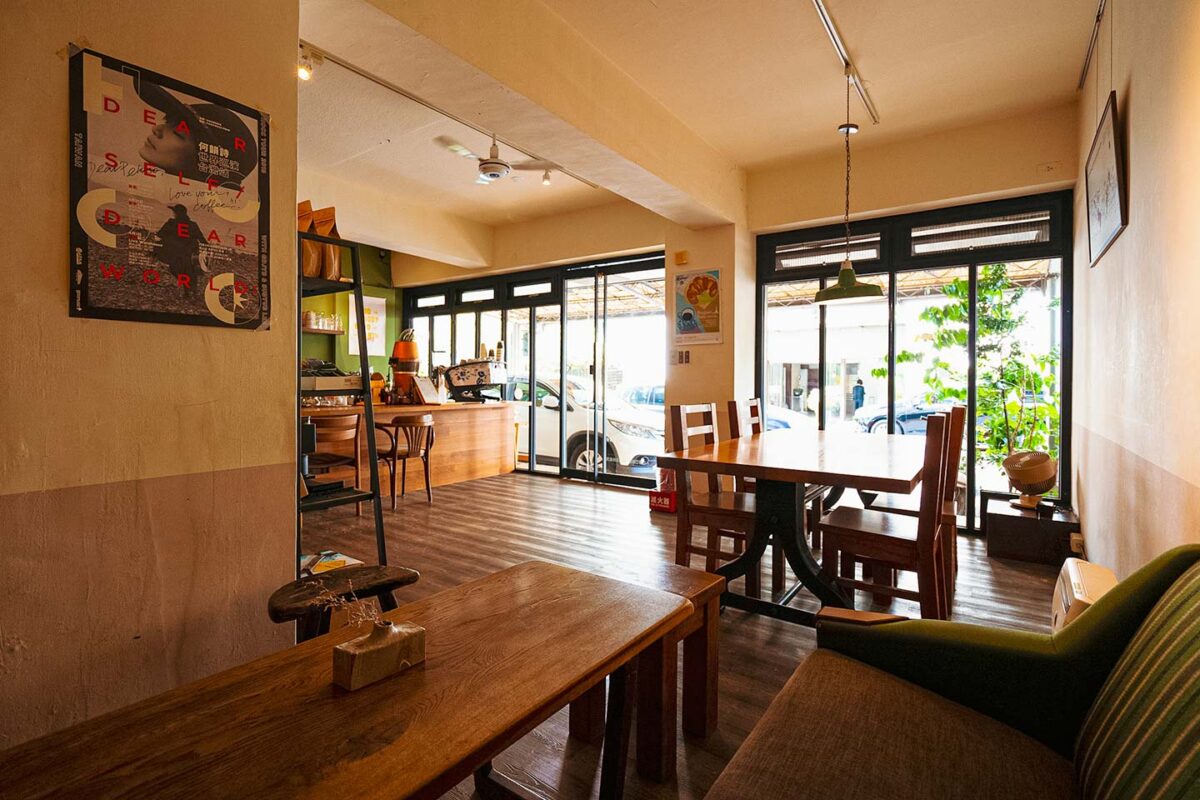
A home from home
While Starbucks can lay claim to branding the coffee shop as the third place – somewhere to relax other than home or work – no place could be more fitting that description than Peloso Coffee, more of a room in a house than a cafe.
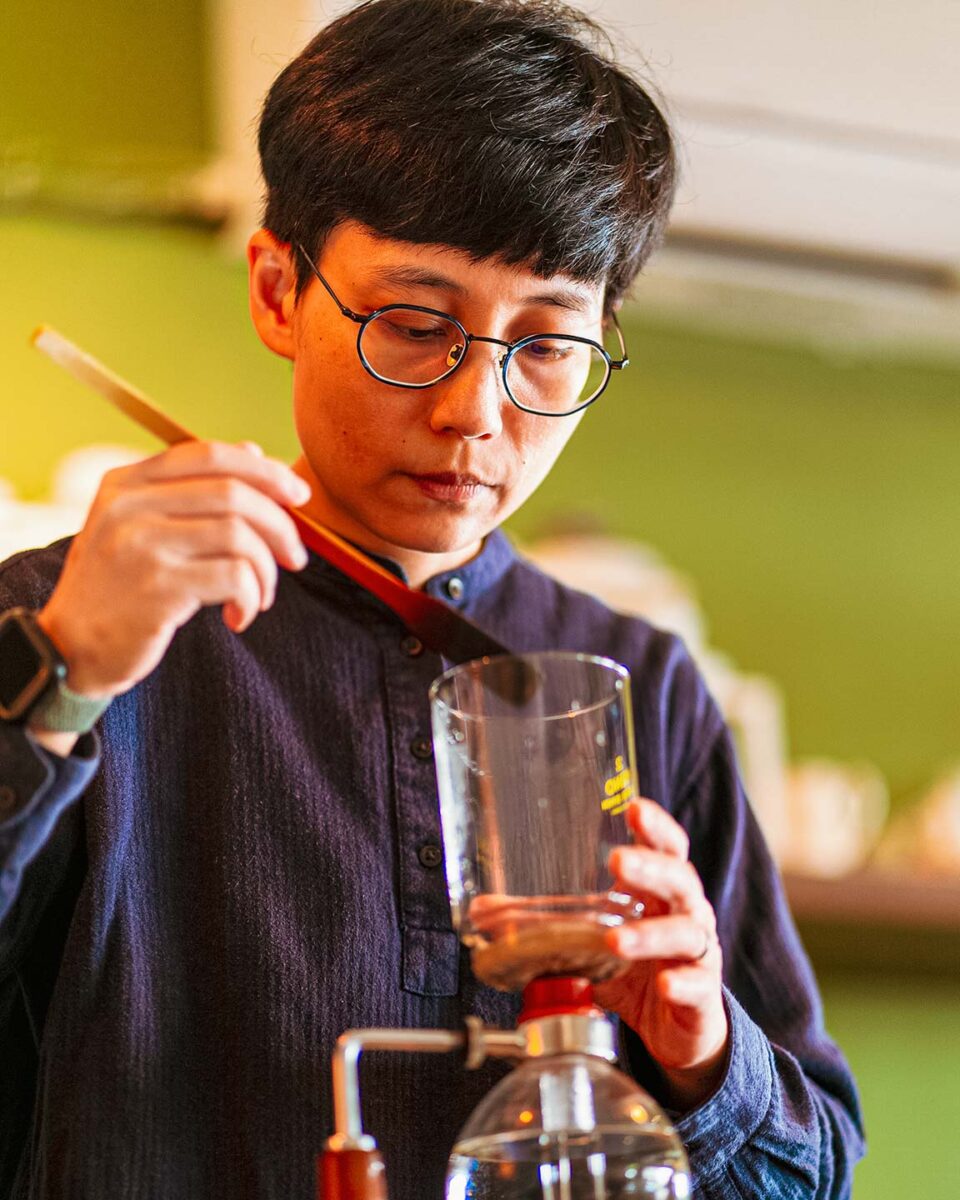
“We all need a place to be alone and I think a cafe is perfect for that. At Peloso Coffee, we don’t go over the top with the decor. We want our customers to feel comfortable and relaxed here, so we prefer to use wood and natural materials in our interior. Occasionally, I’ve seen customers taking a nap at their table. I like that. It’s nice that they feel so safe in this environment.
If someone’s come in because they need a break, maybe they feel unwell, then we’ll show them to a quiet corner, bring them a glass of water and let them rest and take the time they need to recover. And if someone comes in wanting to chat, then we will always take the time to listen.
It’s a shame that even though there are cafes popping up all over Taiwan, few of them encourage interaction between the customers. I think that a lot of people come to cafes for the social aspect and we are always trying to understand our customers, and make a connection with them.”
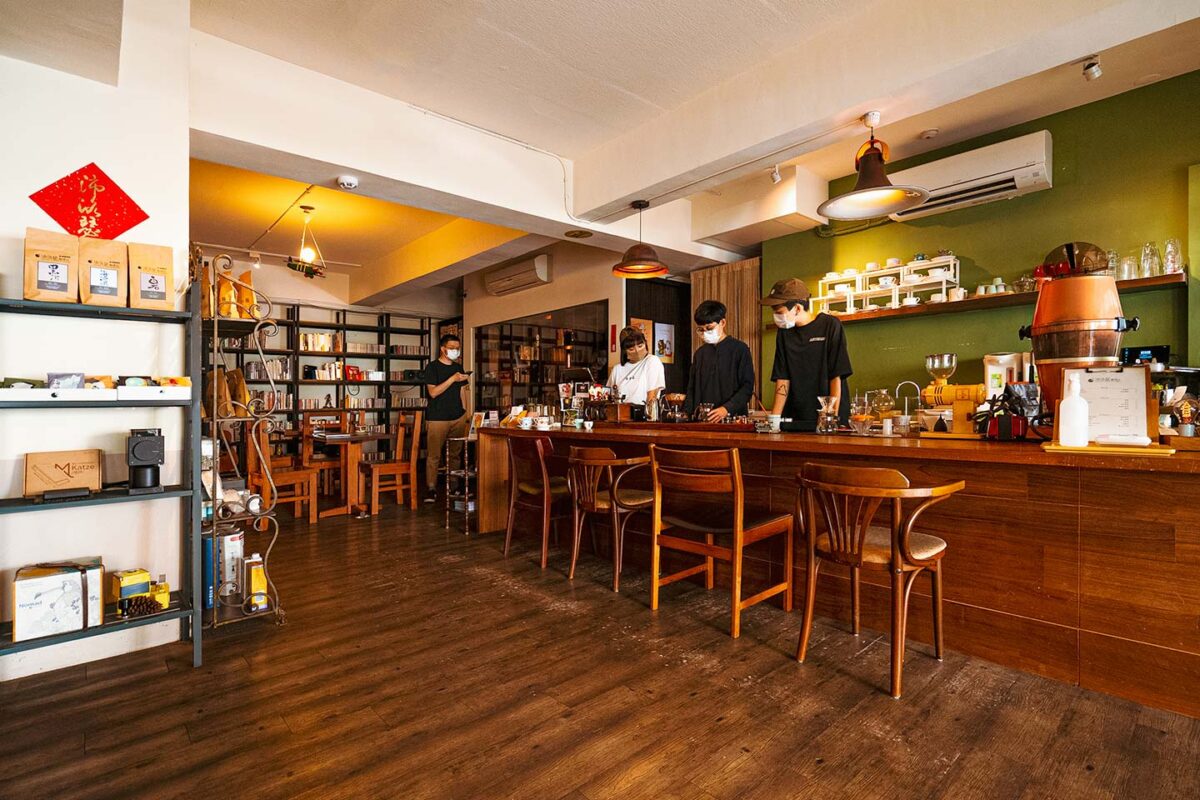
For Kankan and Shí’èr, that does not mean putting the customers’ needs in front of theirs, but finding a way to merge them. From the hundreds of books that line the bookshelves to the cafe music that changes from day to day, it is all the couple’s favorite things that make the cafe so inviting.
“The cafe is not so much a business as an extension of our lives. Roasting beans and serving customers is our job, but working in an environment that feels like home makes it easier for us to give our best performance.”

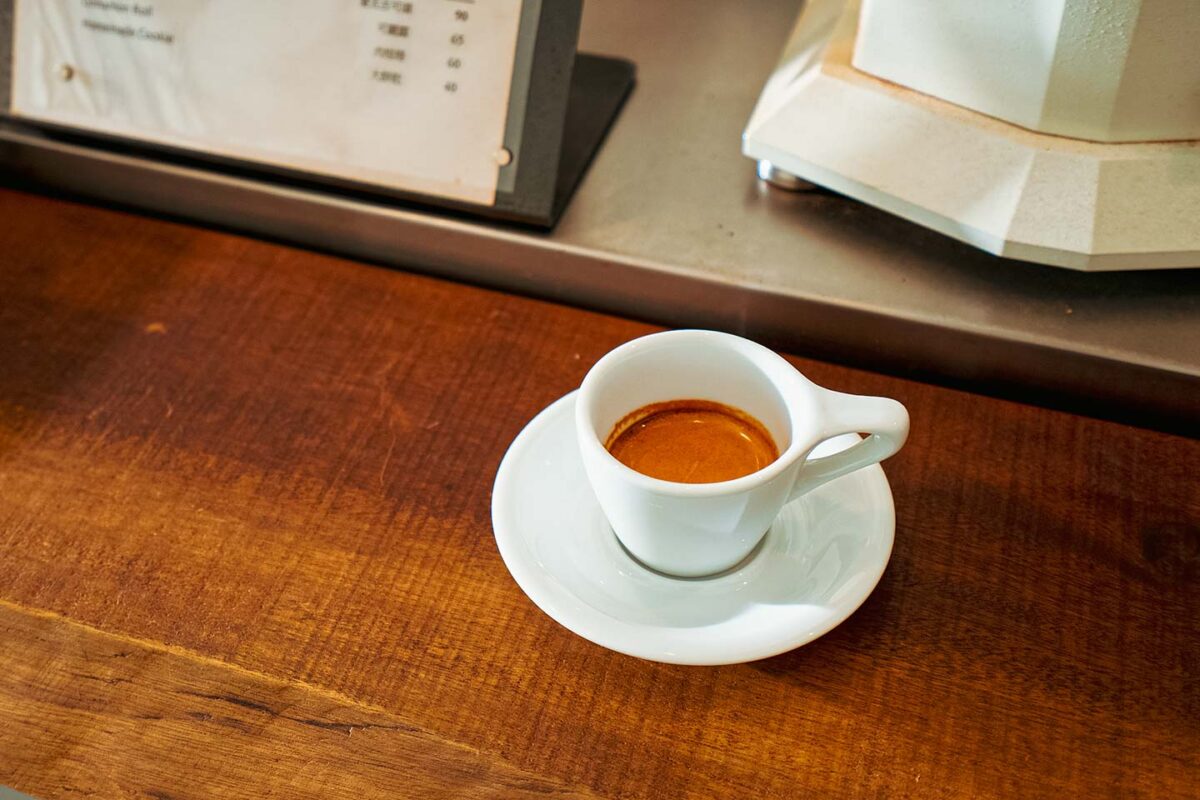
Bringing work and life under one roof
Kankan and Shí’èr met in 2008 when Kankan, then a graduate student, got a part-time job at the roastery cafe where Shí’èr was working. The cafe was way ahead of its time, serving Italian espresso and specialty coffee before it was popular in Taiwan.
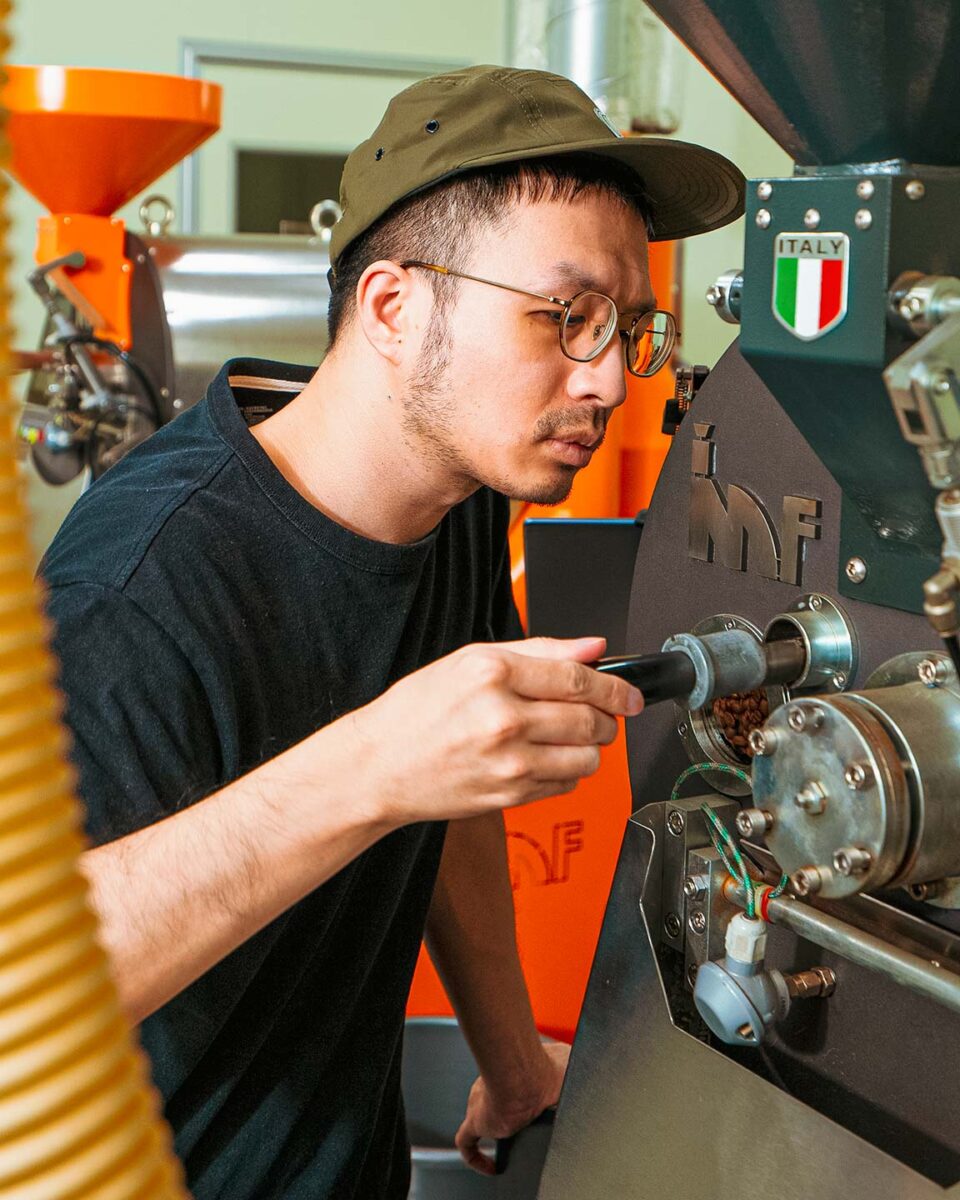
“It wasn’t exactly love at first sight,” says Kankan, talking about when she first met Shí’èr. “He’d been working at the place longer than me so he’d teach me about roasting and other techniques, and we’d talk about our coffee philosophy. As time went on, our friendship grew and we became closer.
What I like about Shí’èr is how he’s always pushing to get the best possible quality, but at the same time is very humble and honest. There are a lot of people who are overly confident in the quality of their coffee, and it means they might not see where they could improve. But Shí’èr is always evaluating himself objectively and looking for ways to get better. And that’s what drew me to him.”
The pair had followed different paths in school, with Shí’èr majoring in history and language, and Kankan a researcher in the field of natural science. Yet after graduation, they both found themselves without a clear direction, and chose to stay on at the cafe while they considered their future. As they thought about what they enjoyed, and how much sharing coffee with other people was a part of that, they realized that opening their own cafe was the natural thing to do.
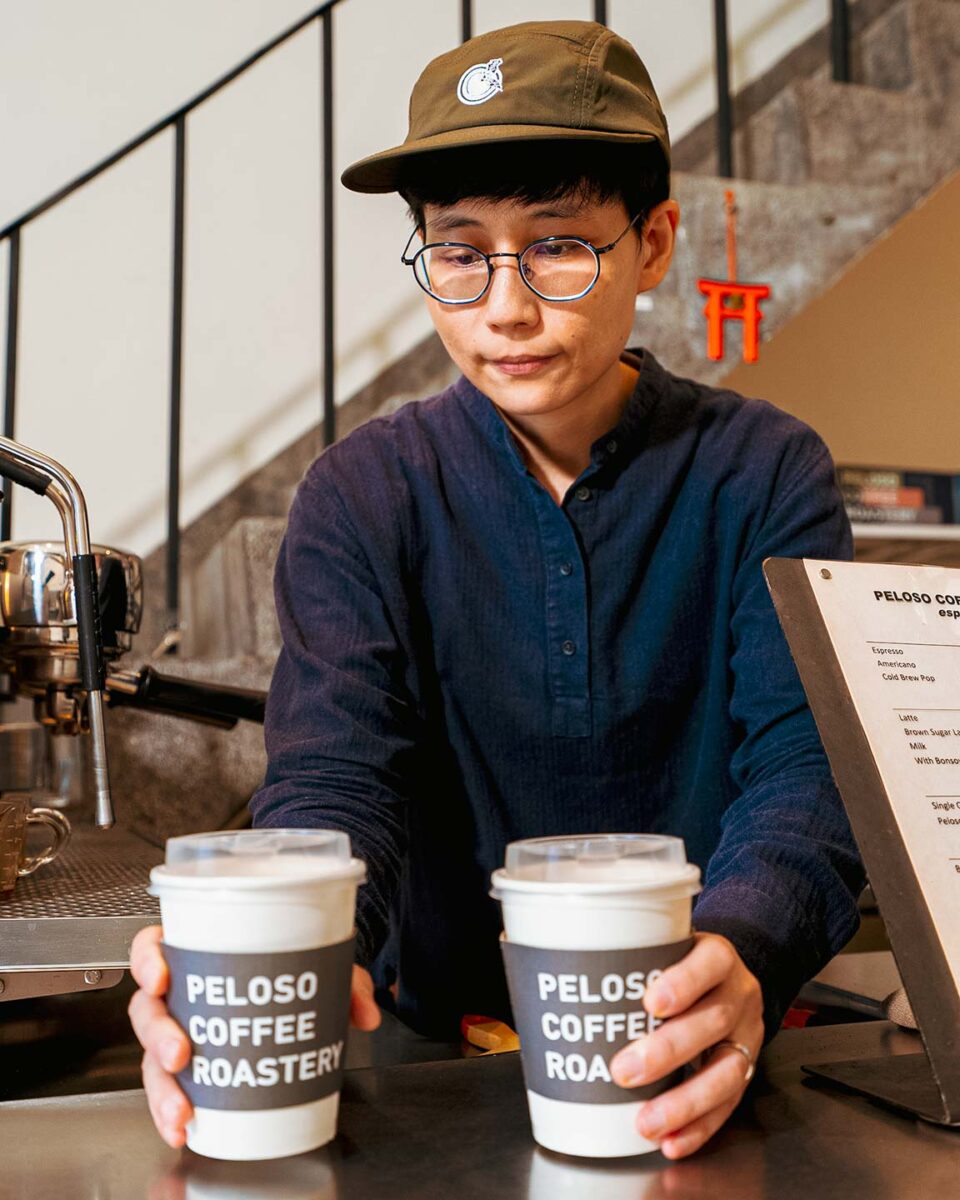
“The cafe was more about our love of sharing moments and experiences with people through coffee, than it was about the coffee itself. We’d always wanted a way to bring our home life and work life together, and a coffee shop was the perfect way to do it, and something we would be able to do for a while.”
Apart from their part-time job at the cafe, neither of them had any specialist coffee knowledge or experience of running a business. However, while they had some doubts, Kankan and Shí’èr believed that the best way to learn was on the job, and after mulling it over, decided to open Peloso Coffee. That was in 2010.
“We were really lucky to have the support of the manager at the cafe we were working at. After we opened, they were always willing to help with any questions we had, and generous with sharing their knowledge about methods and everything. Having that support really gave us the confidence we needed to go ahead.”

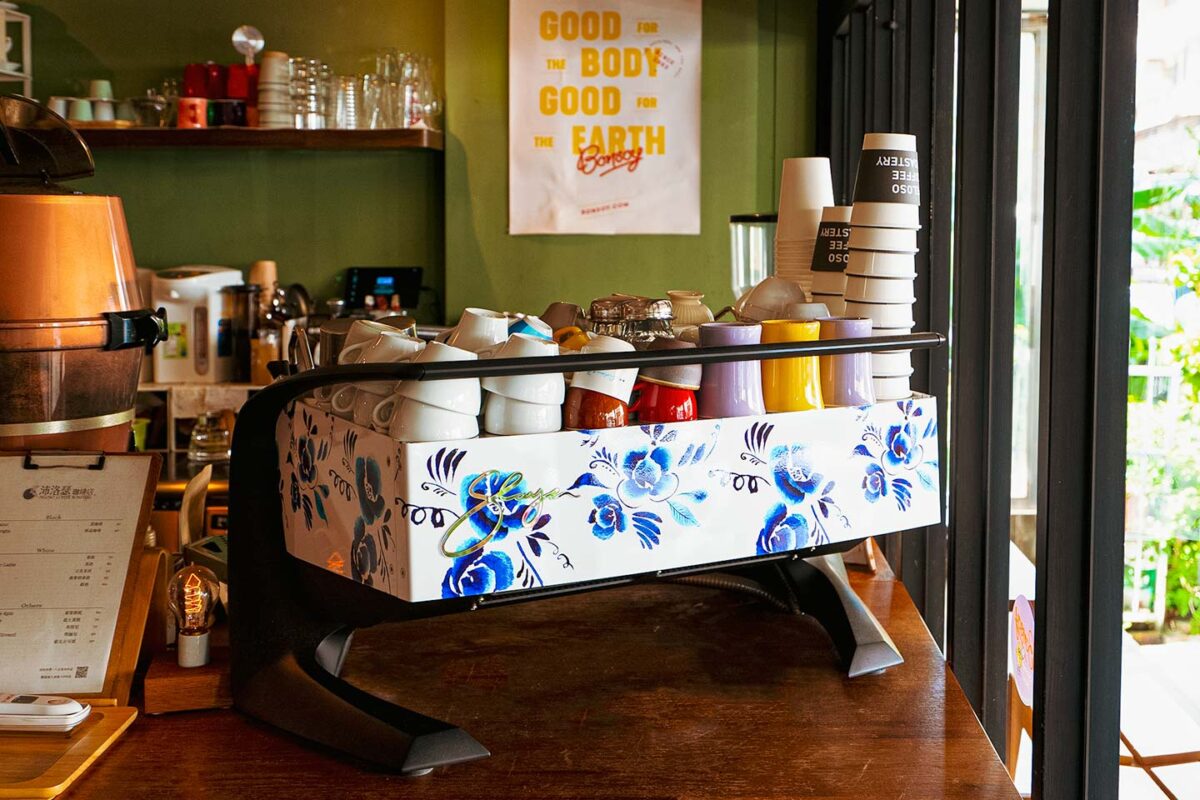
Taking risks to grow
For the first few years after founding the cafe, and until they moved to the next location, Peloso Coffee had a roasting machine, a bar counter, and seating for up to 15 people in a space of only 10 square meters. The cafe’s location – a residential area with little industry – coupled with the fact that neither did much promotion meant that business was slow in the early days.
Kankan can still vividly remember the first six months after opening. There were many days when all they did was read books and listen to music, while the cafe stood empty of customers. It was not until two and a half years later that they were finally making enough money to support themselves.
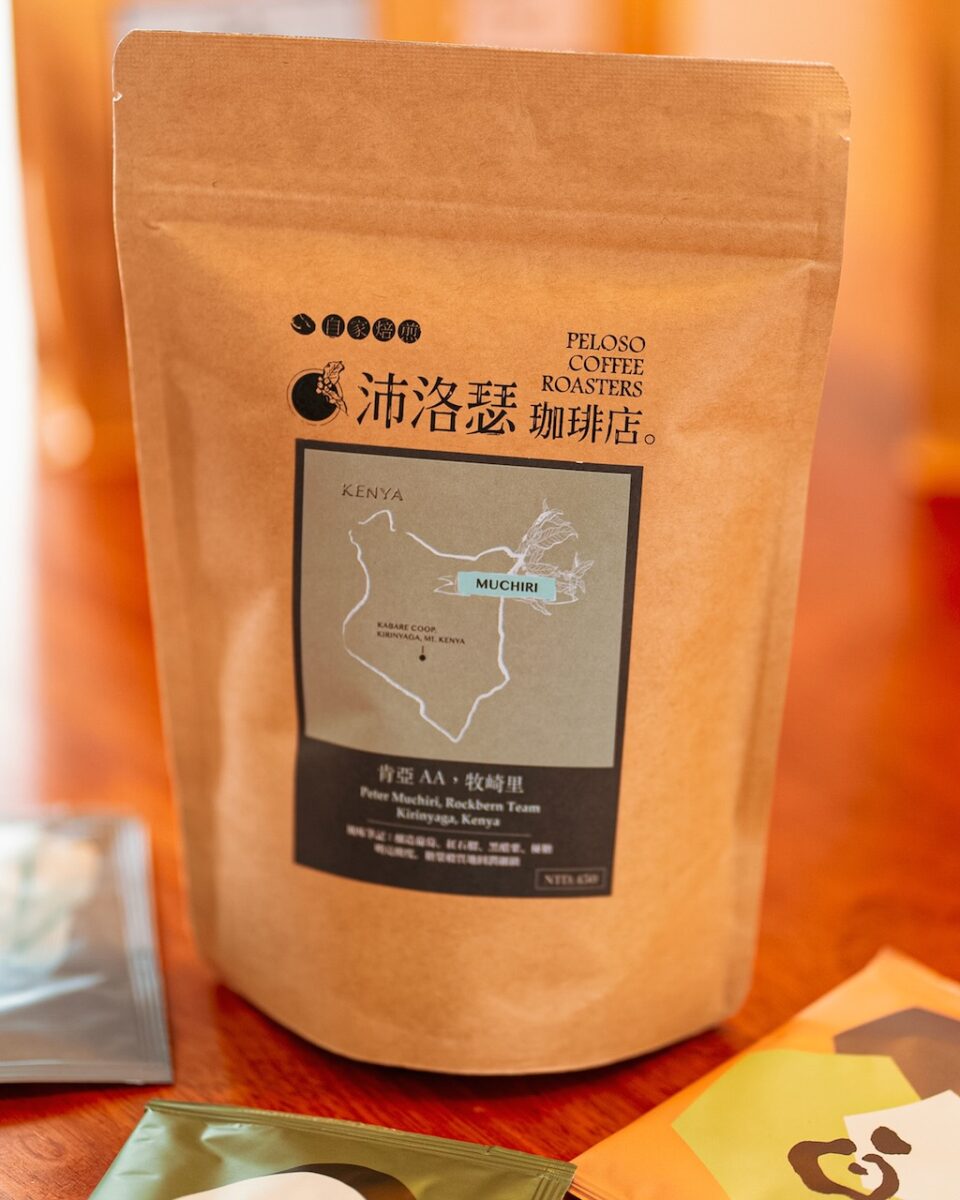
“The thing is, we were never worried because it was what we’d expected. We’d made a commitment and we were ready to see it through no matter how hard it got. Later, we were helped by the fact that coffee started to become popular in Taiwan, and people started looking for decent places to drink coffee nearby.
At the same time, as specialty coffee wasn’t that well known, people were able to accept us without any stereotypes or expectations of what it should or should not be. This meant we could adapt the lineup to the tastes and reactions of people coming into the cafe, and I think that helped us grow.”
Specialty coffee is generally characterized by small, independent shops. Growing the business means being able to serve more customers, but comes with the risk of losing a handle on quality and purity. With a 3 kg roaster and a seating capacity of 30, Peloso Coffee was already a mid-sized business and Kankan and Shí’èr had to make a decision – size up or stay micro.
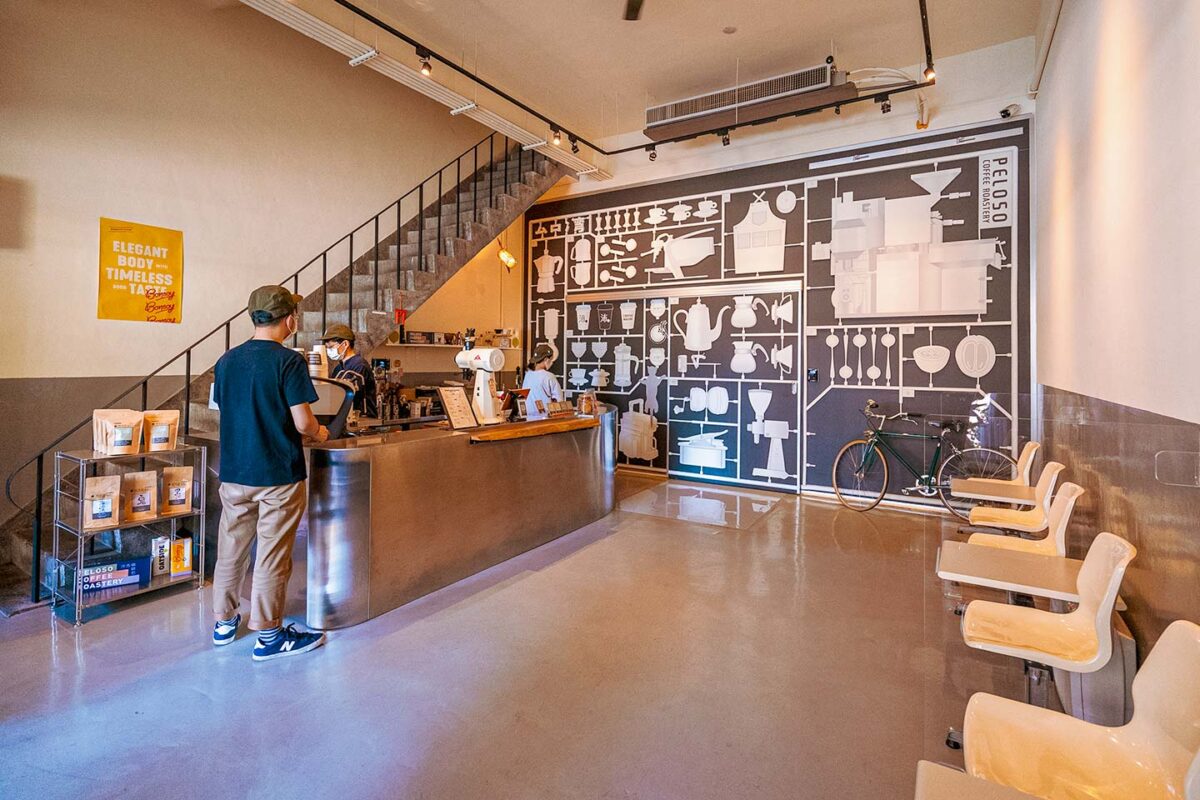
“After talking it over, we decided to try and grow the business because we realized it would be easy to take on new challenges if we had more capital.”
In 2018, they began the next stage of their journey. They wanted to be sure that the demand was there before investing so they began by loaning a roaster for six months. Once the business felt stable, they purchased a 15 kg roaster.
They soon realized that with the increase in green beans they would need more storage room, and in 2020 established the Peloso Coffee Roastery. With the roastery located in an industrial area, they decided to add a takeout bar for people to grab a coffee on their way to work.
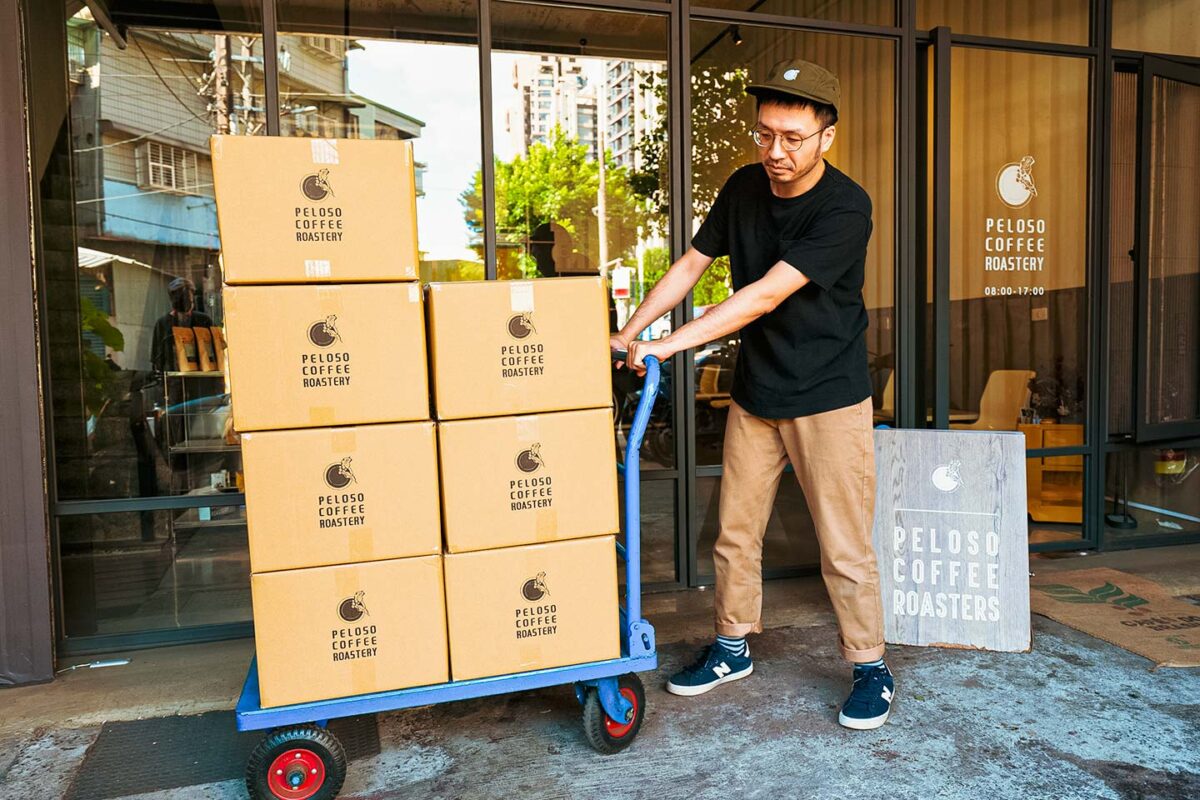
At the same time, they began a coffee consultancy for wholesalers. The consultancy offers advice on problems shops face when serving the coffee, maintenance issues, and other support.
“The feedback that we get allows us to improve the quality of our coffee, and the wholesalers have more confidence in their product, which in turn has a great impact on our business.”

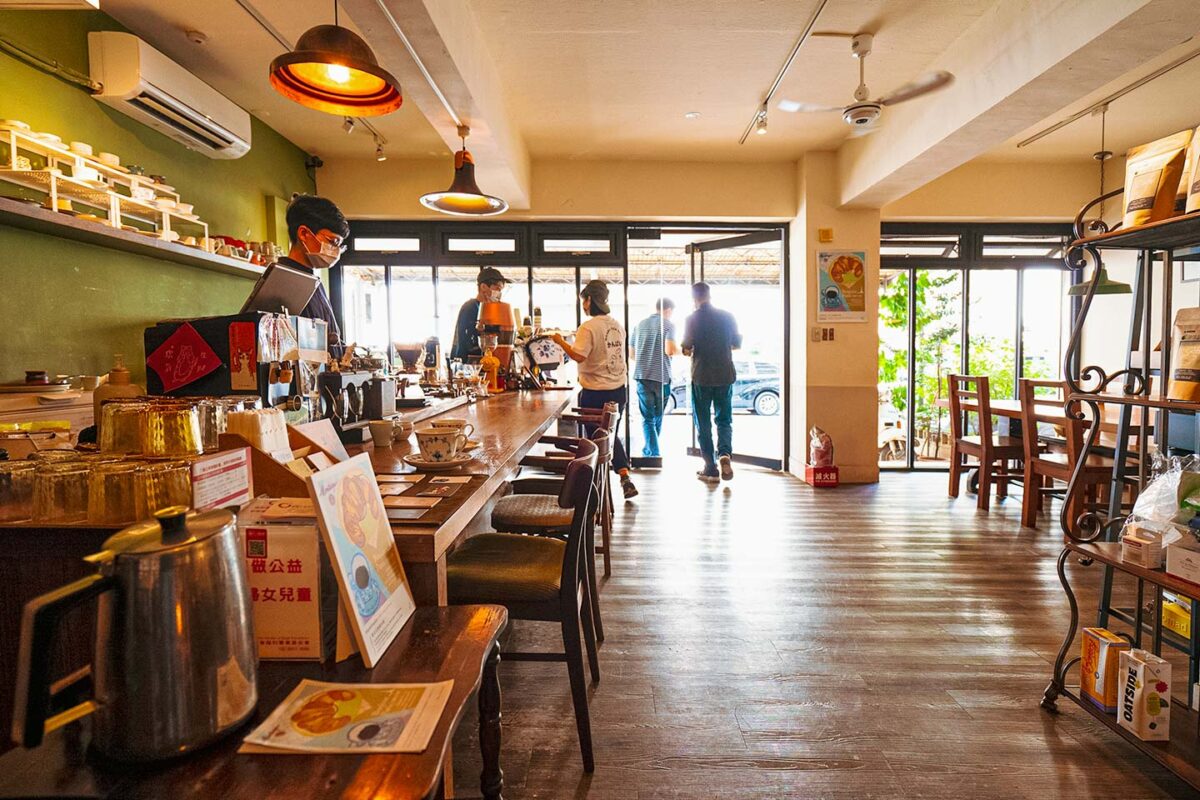
A love for coffee is the secret to success
When they first started out, neither Kankan nor Shí’èr imagined that the business would grow to this scale. There is no time for sitting around reading now. But with growth comes more responsibility and Kankan and Shí’èr have found that they spend more time managing their team of 10 than they do interacting with the customers.
“We like how Peloso has evolved and we want to keep it at the size it is now. But talking with customers is one of the things we really love about running a cafe. I think in around 15 years time, we’d like to open a much smaller place. In the last ten years, we’ve changed our way of thinking and we’ve gotten some new ideas. The new shop might have a totally different interior and music. But whatever direction we decide to take, it would always be a place to bring our life and work under one roof. “
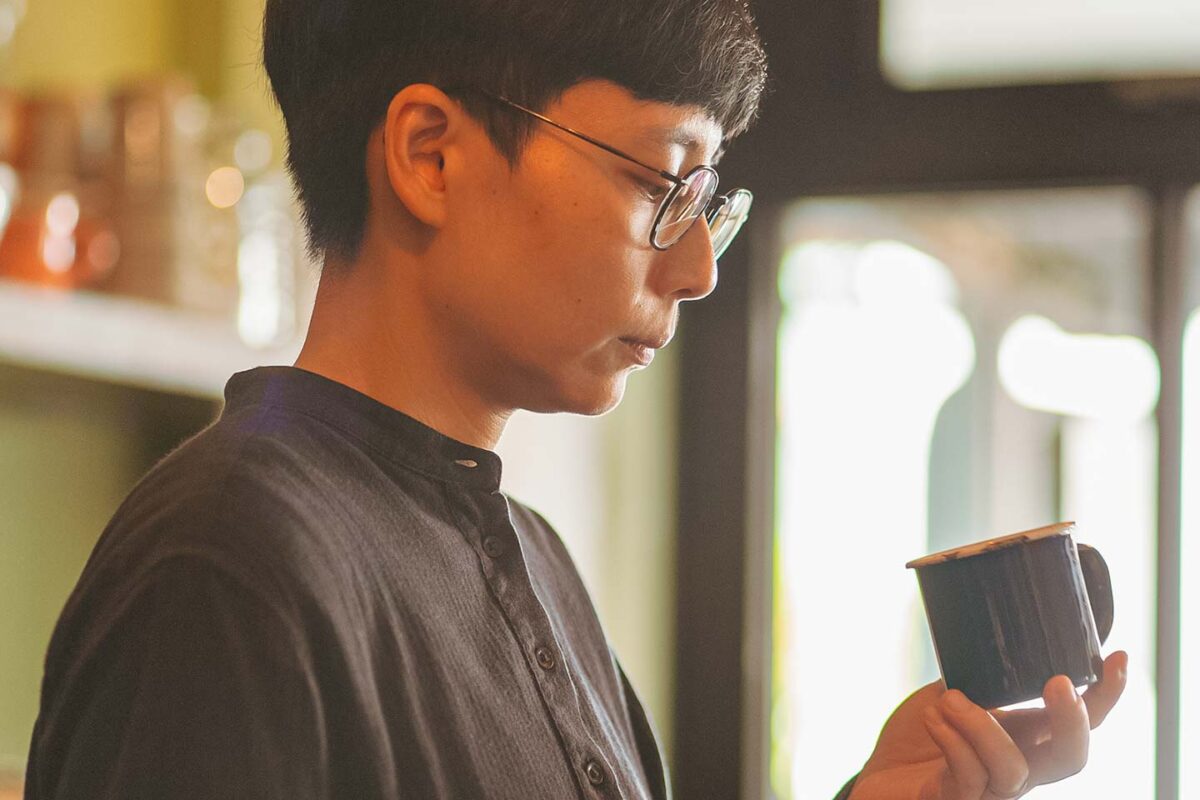
Once something becomes a job, it becomes a responsibility, and the need to earn a living can often overshadow every other aspect. For many, this is enough of a reason to keep their passions separate from their professions. But not for Kankan and Shí’èr.
“We keep growing and evolving because of our passion for coffee and if we didn’t have that, we wouldn’t be able to do our job as well as we can. So we’re always conscious of making sure we stay true to the feeling that brought us here in the first place.”
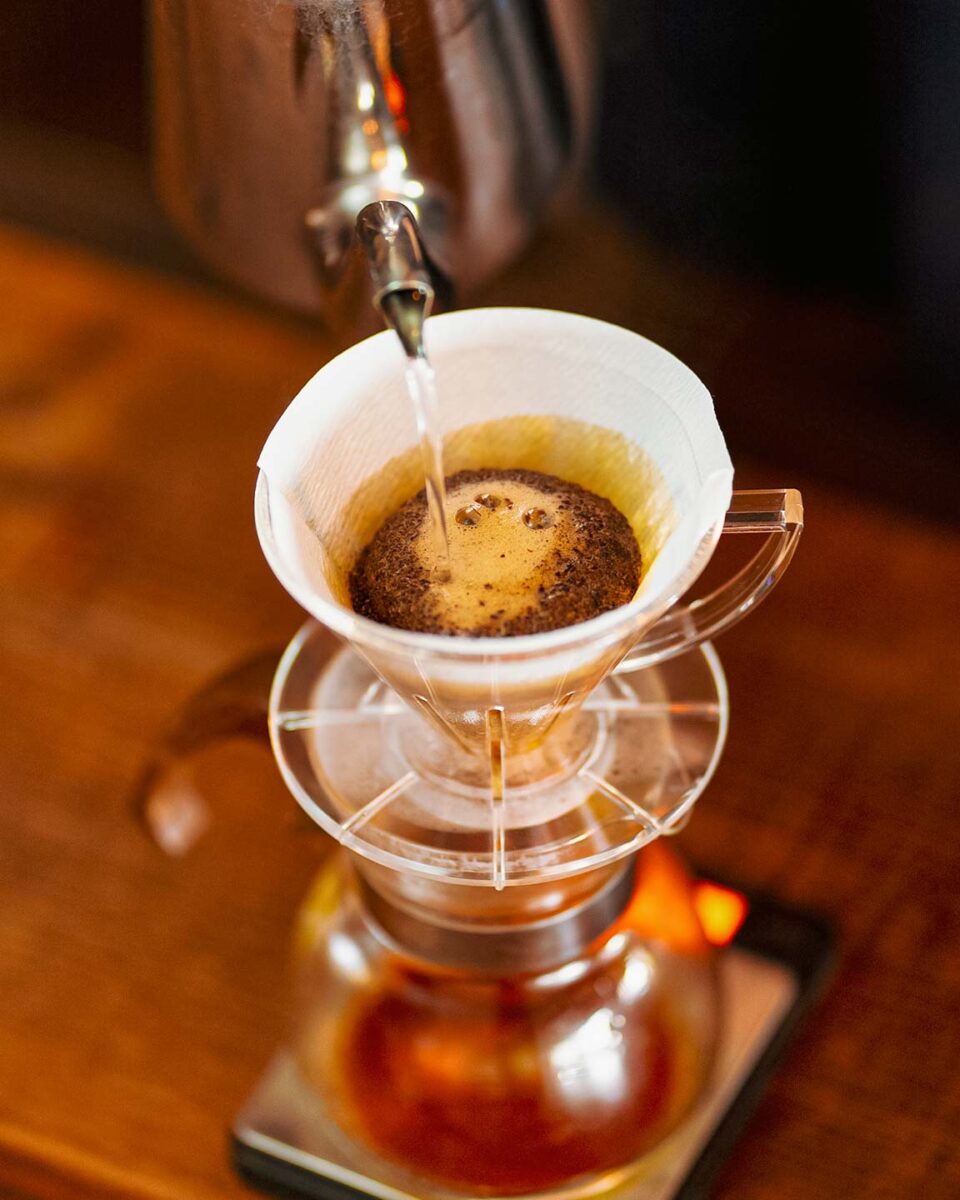
While happy times may help a relationship form, it is the tough times that make that relationship strong. Sharing a life and business together, Kankan and Shí’èr have had their share of ups and downs running Peloso Coffee.
“When something happens at work, whether it’s good or bad, we always talk about it, and try and be as rational as possible. Since we opened the roastery, it’s more important than ever because we’re often working at different locations. It’s not all smiles, and sometimes we get annoyed with each other, but that’s natural I think. We’ll often continue the discussion at home, but I think we both try to get our thoughts in order and know exactly what we want to do before we start the conversation.
We’re lucky in that we have a lot in common and share similar tastes. But in the end, we are two individuals and there are going to be some things we disagree on. But it doesn’t have a negative effect on our relationship as a couple. Communicating your ideas and thoughts to another person takes a lot of effort. Disagreeing with each other and having these discussions is how we learn more about one another, and how to be more understanding of our differences.
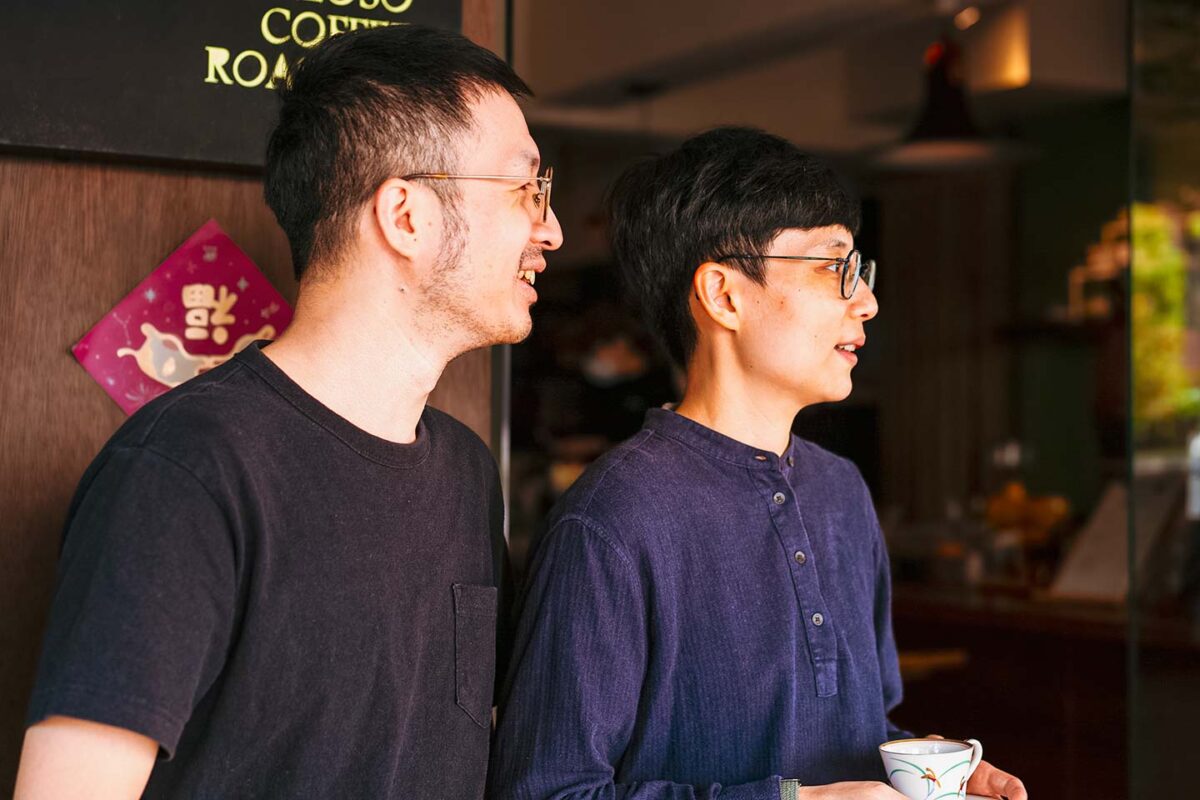
I like to think of our relationship as a cup of coffee. Coffee has both good and bad qualities, but how you see these qualities depends on the person. It’s subjective. If we share our likes and dislikes, we can learn more about coffee and take our enjoyment to a different level. It’s not healthy to lock away your negative feelings or ignore them. It’s better to put it all out there and deal with it head on. So we try to find a balance and always find time to talk about coffee.”
It does not take long for humans to get used to their surroundings. Familiarity turns to comfort, comfort to complacency, and before you know it, you are coasting on auto pilot through a monotony of day in day out. Or, we can choose not to forget our passions. Choose to hold on to what brought us here in the first place. And even though that may be the harder choice, there is no doubt that if they had to, Kankan and Shí’èr would make that choice again.
Text: Tatsuya Nakamichi

MY FAVORITE COFFEE人生を豊かにする「私の一杯」
My favorite coffee is when on our days off, we sleep in till late morning and I brew a cup for me and Shí’èr with what we have in the house. Even if it’s just regular coffee, it always tastes extra special.

PELOSO COFFEE ROASTERY
- [営業時間]
- 8:00-17:00